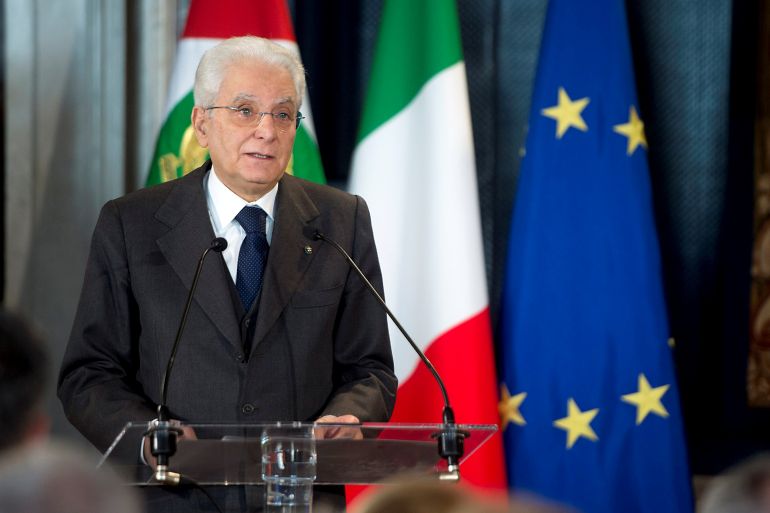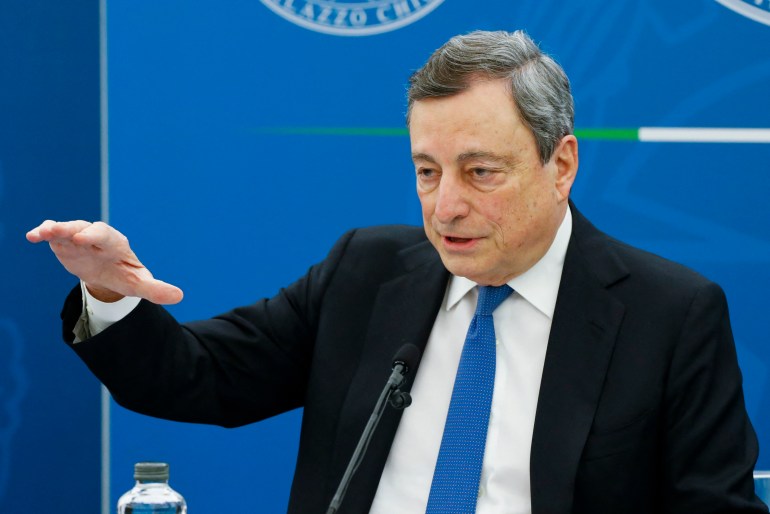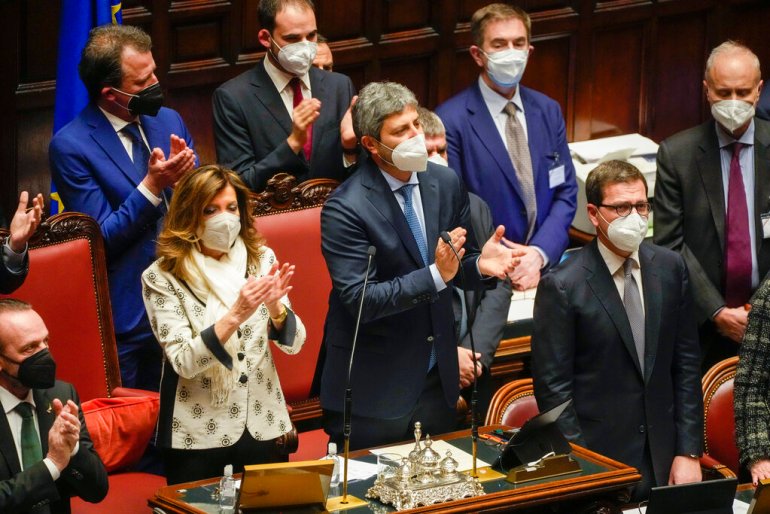Italian President Sergio Mattarella re-elected, ending impasse
Mattarella, 80, agrees to serve a second seven-year term after political parties fail to find an acceptable alternative.

Italian President Sergio Mattarella has been elected for a second term, with parties asking him to stay on after a week of often fraught voting in Parliament to choose a successor.
Relieved party chiefs thanked 80-year-old Mattarella on Saturday for agreeing to remain, but the failed attempts to replace him during seven rounds of balloting have left deep scars, with potentially dangerous repercussions for political stability.
Keep reading
list of 3 itemsItaly accuses Egyptian security of Giulio Regeni’s murder
Salvini in court for blocking migrant rescue ship
In the eighth round of voting among more than 1,000 lawmakers and regional delegates in the Chamber of Deputies, loud and prolonged applause broke out when Mattarella passed the 505 votes needed for election.
He had long ruled out remaining in office, but with the country’s political stability at risk, he changed his mind in the face of appeals from parliamentary leaders who met him at the presidential palace earlier in the day.
The leader of the centre-left Democratic Party (PD), Enrico Letta, who had championed Mattarella’s re-election, spoke to reporters to express his “enormous thanks … for his generous choice towards the country”.
Al Jazeera’s Nadim Baba said the decision brought some stability to Italian politics and financial markets.
“The prime minister, Mario Draghi, had made it clear that he would like to be Italy’s president.
“That didn’t go down well with the main parties in the Parliament – they wanted him to stay in position at least until the next general election in 2023.
“If he had moved, there would have had to be a snap election, which could create instability. He is also seen as someone who can oversee Italy’s post-pandemic transition,” Baba said.

It is the second time in succession that a president has been asked to renew his seven-year mandate. In 2013, political leaders went cap in hand to the then head of state, Giorgio Napolitano, after they too failed to find a consensus candidate.
Napolitano reluctantly agreed, but stood aside two years later after a new government was installed, opening the way for Mattarella.
Mattarella could potentially resign once the political situation allows it, commentators have said.
The fruitless efforts to replace him have left deep scars on the parties and their leaders, with the centre-right alliance in particular disarray after losing any semblance of unity over the past 24 hours.

While both Salvini’s League and Forza Italia embraced the prospect of maintaining the status quo, their ally, the Brothers of Italy, which has not joined them in the ruling coalition, denounced the behind-the-scenes manoeuvring.
“Once again, Parliament has shown that it is not fit for Italians,” said Brothers of Italy leader Giorgia Meloni, accusing her allies of “bartering away” the presidency to ensure the government remains in place until the legislature ends in 2023.
The stakes have been very high. The president is a powerful figure in Italy who gets to appoint prime ministers and is often called on to resolve political crises in the euro zone’s third-largest economy, where governments survive about a year on average.
Unlike in the United States or France, where heads of state get elected in a popular vote, in Italy, 1,009 parliamentarians and regional representatives choose via a secret ballot that party leaders sometimes struggle to control.